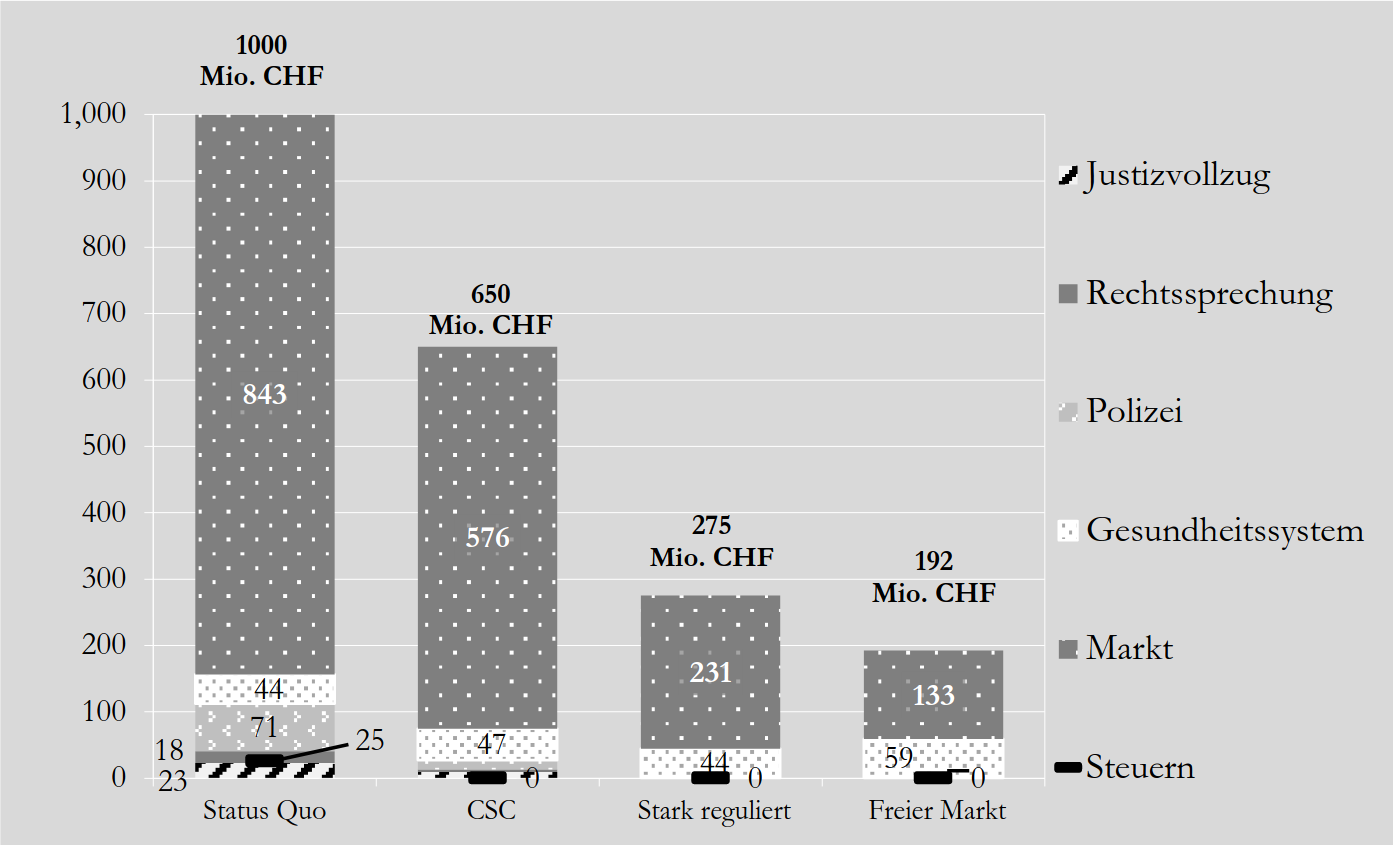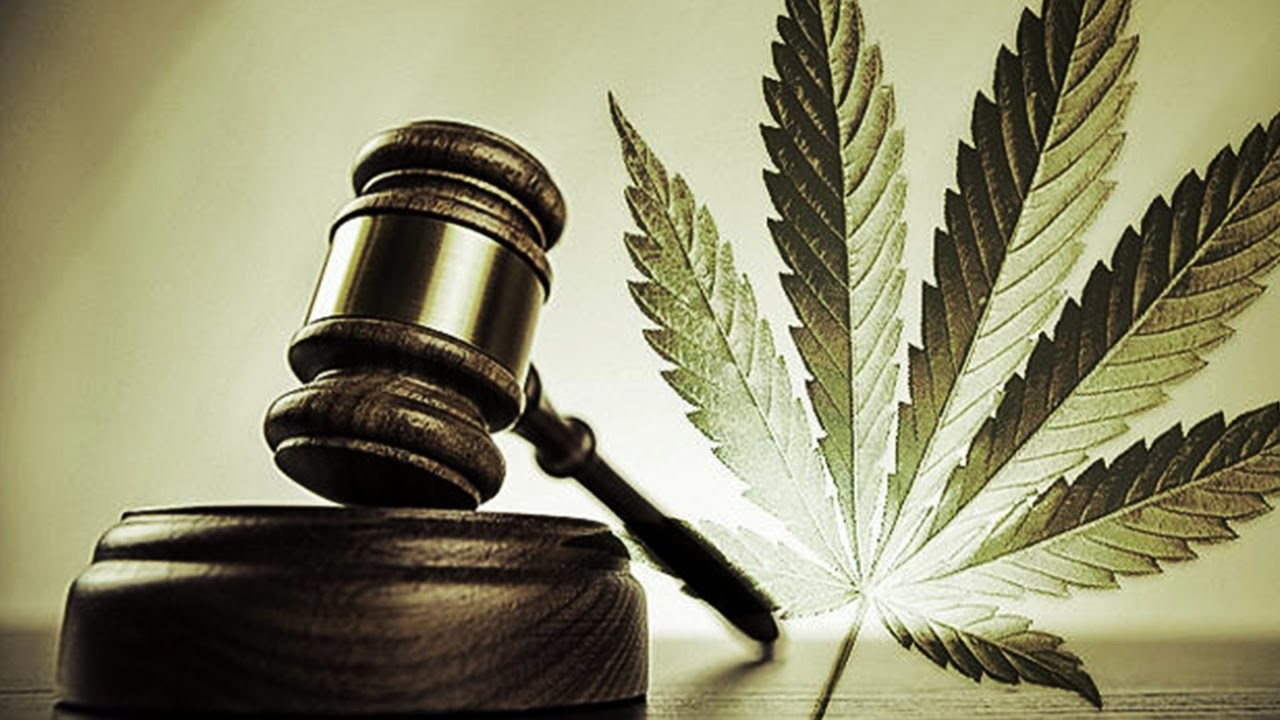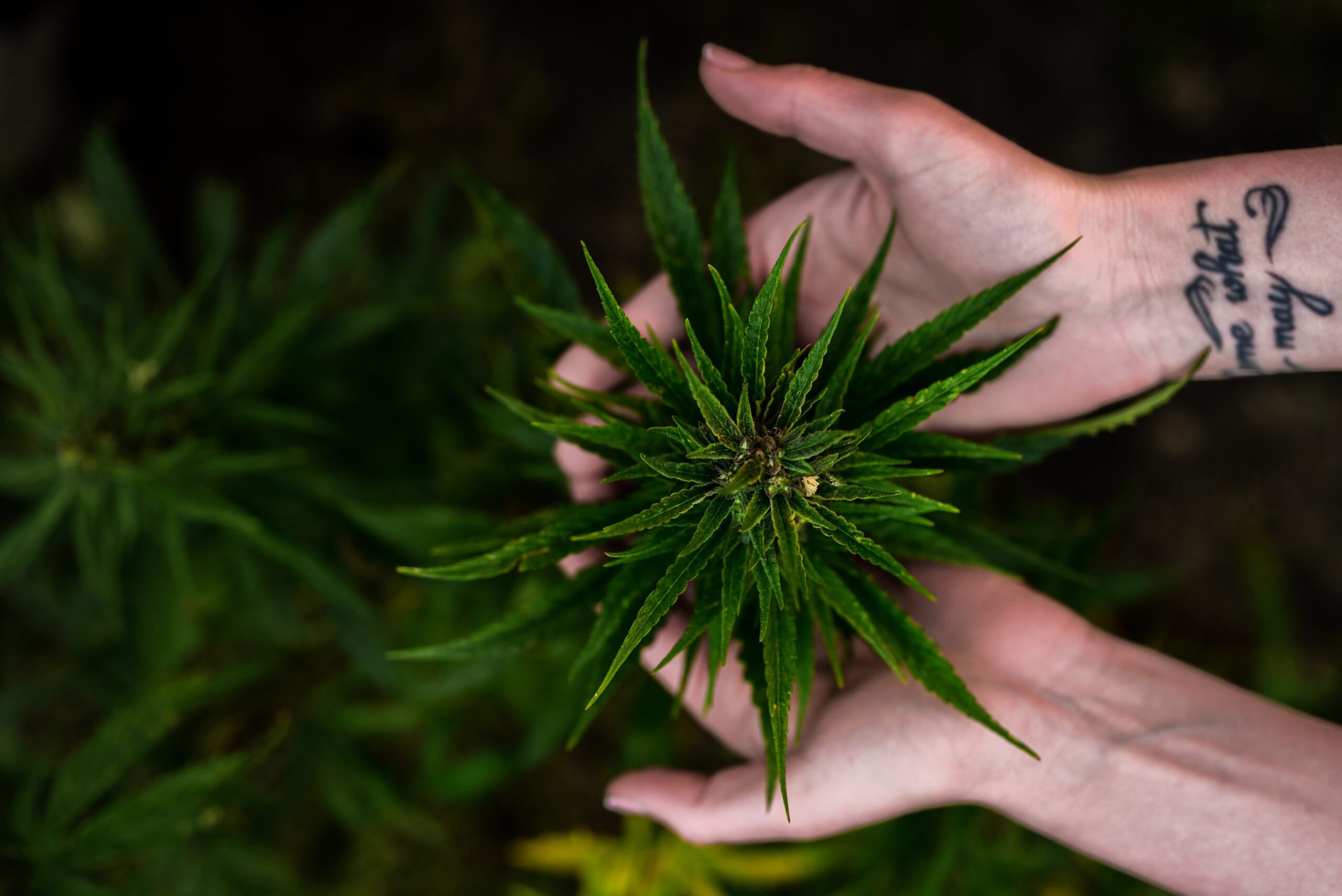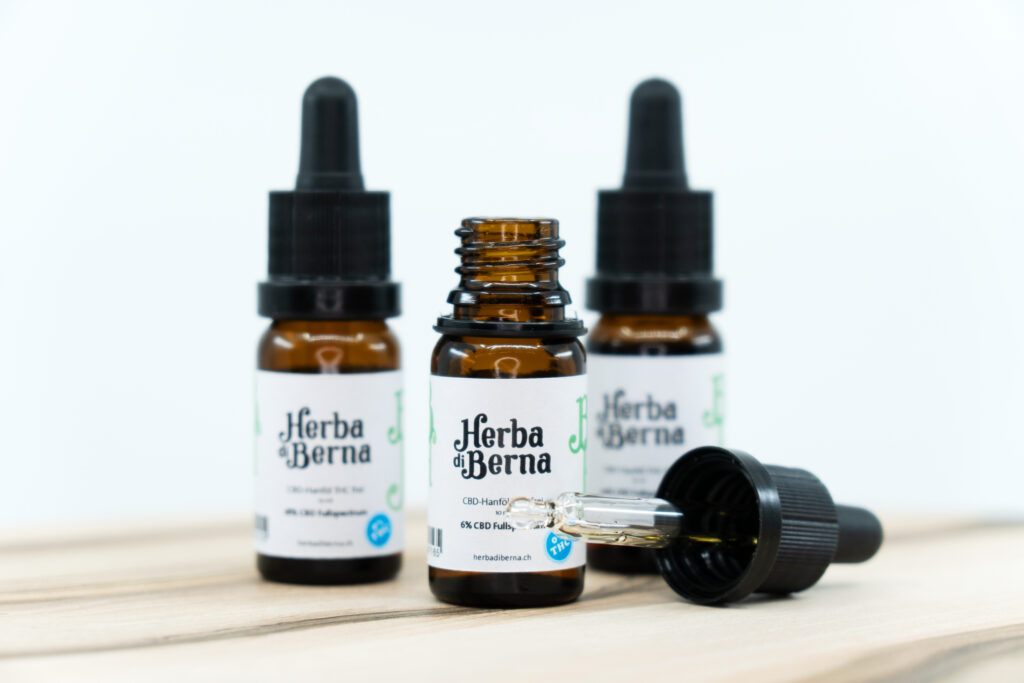
We support the work of LegalizeIt! and thank you very much for the interesting article about the legalization implementation in Thailand, which we are kindly allowed to publish in our blog. First-hand information, as close as possible - that's exactly what we like you to read!
Travelogue: Cannabis in Bangkok (Thailand 2022)
In early December 2022, we took a vacation in Singapore. For various reasons, we decided to bring forward the first leg of our return flight via Bangkok (Thailand), thus spontaneously taking the opportunity to explore the Asian metropolis Bangkok with its more than 8 million inhabitants for a few days. Besides impressive temples, skyscrapers, huge markets and street food in almost every street, there is also more and more cannabis in Bangkok lately!
The difference in the handling of cannabis could not be greater between the two Southeast Asian countries: When entering Singapore, you are informed in red letters that any handling of drugs is strictly forbidden and drug smuggling is even punishable by death! In Bangkok, on the other hand, a lot of cannabis stores now dominate the cityscape. How did it come about and how do you experience Thailand’s young cannabis scene as a tourist? A travelogue.
Arrival and high-end dispensary “High Got You”.
Our flight landed in Bangkok in the late afternoon. After about 45 minutes of cab ride from the airport to the city, we arrived at our accommodation. In the cab we could already make out a few hemp stores as we drove by, but we didn’t just go to any one, we paid a visit to a store called “High Got You”. The store was located in the “hipster neighborhood” Ekkamai and, according to the website, also had vaporizers on sale. On the shelves were numerous elaborately designed bongs, and on the counter were flowers of the current offerings with magnifying glasses and labels. In terms of design, it looked like an Apple Store.


The gram of flowers here cost about 700 baht, which is the equivalent of about 18 francs. This is almost twice as expensive as in the planned “Züri Can” pilot project.
Unfortunately, the High Got You only had one electric vaporizer in stock when we visited: the Yocan Vane, a cheap model that cost less than 2 grams of flower. In general, electric vaporizers are not (yet?) available on every corner in Bangkok. More popular there instead seems to be the Dynavap, a non-electric evaporator that you have to bring to the right temperature with fire or external induction heating coil.
Surprisingly, it is not so easy to find vaporizers in Thailand. This is because all types of vapes are basically banned in Thailand. The ban was probably enacted with nicotine vapes in mind, but now strictly speaking includes cannabis vaporizers as well. So where you still find vaporizers, they are illegal imports. This is also reflected in the higher price – with higher-quality devices in other stores.
Equipped with THC flowers and vaporizer, we went in search of a place to consume, because consumption is prohibited in public. This is also the case in some other countries with legal cannabis, and it continues to pose logistical challenges for tourists. In a rooftop bar within walking distance of the dispensary, we first fortified ourselves with a portion of fried rice and then asked the bartender if it was allowed to smoke pot on the terrace? The bartender advised against it and recommended consuming in the stairwell instead. He was probably worried that we would disturb other guests with smoke, but with the low vapor emissions of an electric vaporizer, that’s not a problem.
Unfortunately, the cheap vaporizer turned out to be barely usable. Sure, it already got hot, but hardly any steam came, which then also did not taste fine, showed little effect and left an unpleasant scratch in the throat.
Day 2: Small enthusiast store “Smilemacy”.
The next day, we therefore went straight to the next hemp store. This time I went to “Smilemacy”, a much smaller store, but they had high-quality vaporizers from Storz & Bickel in stock, which I confirmed for safety’s sake via a short message via Messenger app. In the store, the owner greeted us “Dear”. From the selection of products, the expertise and his whole manner, you quickly realized that here is an enthusiast in front of you.

The selection of flowers was small but nice: There was one CBD strain and at least one each of indica, hybrid and sativa.

The “Super Silver Haze” (Dear’s recommendation) tasted fine and had a pleasant effect. The flower was quite compact and not overly covered with THC resin. A solid performance, but with room to improve (compared to the quality of cannabis in California, for example [USA]), especially for this price.
At the following membership meeting, it was remarked, “The bloom looks typical of the use of PGRs (Plant Growth Regulators)!”

We asked Dear in which places it is allowed to smoke pot in Bangkok? He said, actually, anywhere smoking is allowed (a contradiction to our experience the night before). Outside his store would be okay in any case.
Consumption possibility: “Heaven Of Weed”.
To explore the area a bit, however, we instead walked further down the street and there, by chance, we stumbled upon a store called “Heaven Of Weed”. There you could not only buy THC flowers by the gram, but also sit down and consume them comfortably like in a café.
Most varieties there cost about 800 baht, the equivalent of about 21 francs. This is a little more expensive in comparison, but in the other stores you could not consume in the store in each case, but only outside. With the high temperatures in Bangkok (30 degrees in the cold season), you appreciate a well air-conditioned interior!
Unfortunately, there was not a single CBD strain at Heaven Of Weed. The salesman said that CBD flowers were also legal, but were a little less common in stores.

Below the store was a restaurant where you could order food and drinks, which were then delivered upstairs to the consumption room.

Legalization history
In the following days we made two tours: A bicycle tour on the man-made island “Bang Kachao” and a train tour to the “Damnoen Saduak Floating Market”. Both tour guides told the respective group on their own that cannabis was recently legalized in Thailand. One said that the development had surprised him: Cannabis had generally had a bad reputation among the population – it was considered worse than cocaine. He speculated that the low prices of homegrown cannabis ensured that cannabis became the drug of choice for poorer people. With the second tour guide, we asked why legalized. He replied that cannabis was actually legalized for medical purposes and then there was a loophole, which is now being used. He joked, “Thailand used to be known as ‘Land of the smile’, now we are becoming the ‘Land of the laugh’!”
When you dig deeper, you find that the tour guide’s narrative was not entirely accurate: this was not a loophole, but an intentional change.
With an election campaign that included cannabis legalization, Thailand’s Health Minister Anutin Charnvirakul was elected in 2019. Cannabis was legalized in Thailand in the same year, initially for medical use. Then, on June 9, 2022, cannabis flowers were removed from the list of narcotics, which also legalized consumption for pleasure. This is really only about flowers: Any extracts such as THC oils or THC hashish cannot be found, but remain illegal.
However, there is some truth in the term “loophole”, because what does not yet exist is an explicit legal regulation that lays down more precise provisions. Therefore, the current phase of the cannabis scene in Thailand should be seen more as a “Wild West” phase, which could change again in the coming months, if necessary, after the initial legislation.
Impressions during the trip
Well-known attractions in Bangkok are certainly the numerous markets. They are all impressive, the evening markets as well as the weekend markets, those on the street, but also those in the huge shopping malls. You can often see stalls there offering hemp products such as CBD oils for healing purposes.
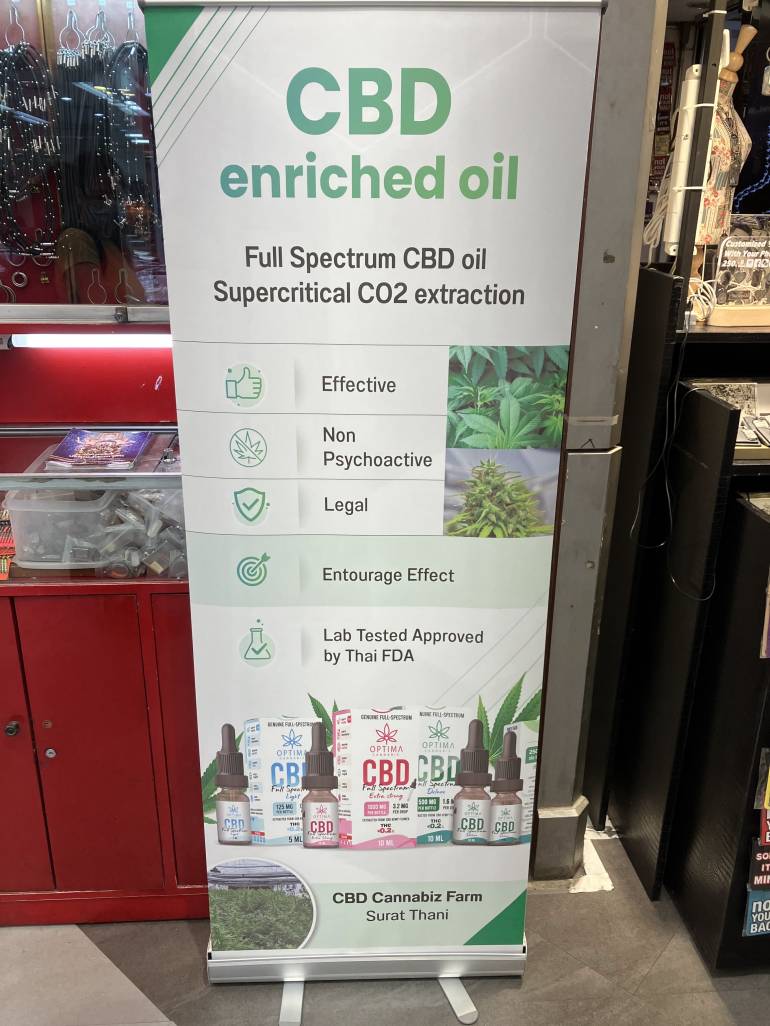
Not to be missed on a visit to Bangkok is a detour to “Khao San Road”, a busy street with high tourist traffic in the so-called “backpacker district”. There, we encountered various cannabis stands and bars in the bustling nightlife. Three employees stood in front of a cannabis store and tried to lure us in with the help of the menu. A few corners away we saw a couple of men strolling through the street with a bong in their hands.
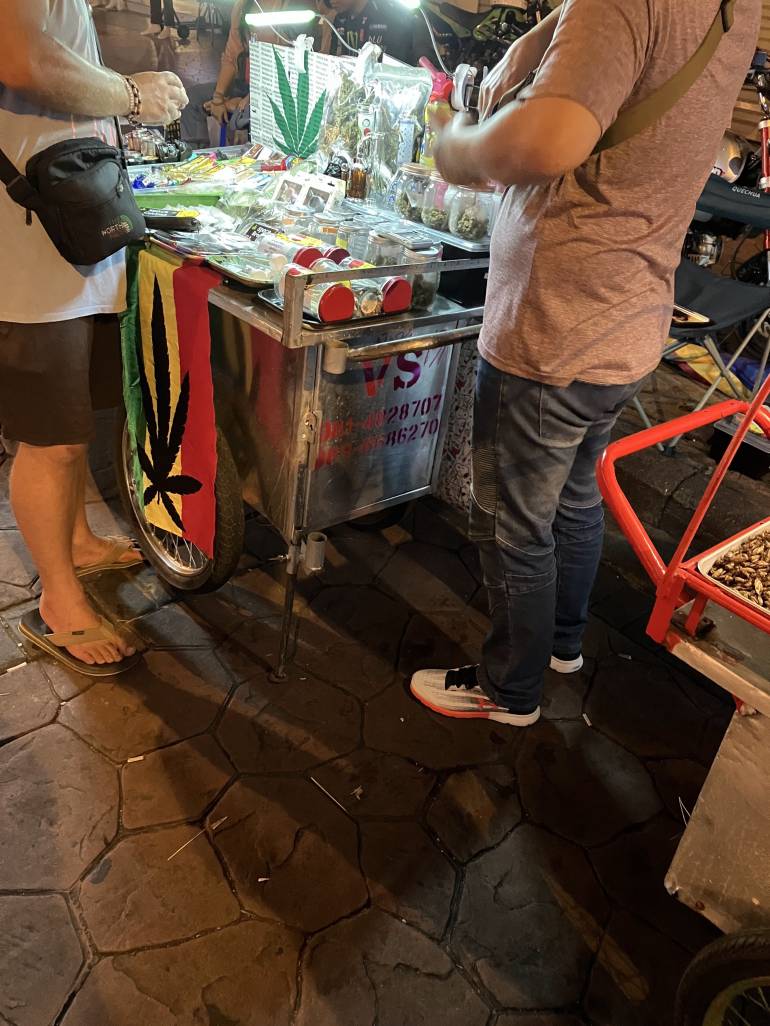
Conclusion
If Thailand appeals to you as a vacation destination, there is now another reason to visit. It’s an exciting time and I found it very interesting to see the burgeoning cannabis scene. But if you’re more interested in a cannabis vacation than Thailand, I’d recommend Amsterdam instead, which is much closer.
In comparison with Switzerland, the two approaches to legalization are very different: Thailand has simply legalized with a comparatively quick change. Opponents of legalization call it a rush job and even demand that the change be reversed. What the coming regulation will look like over the next months and years, and how successful the “legalization first, details later” model will be, will be interesting to watch.
The Swiss approach wants to avoid this problem at all costs: In years of pilot tests, enough knowledge is to be gathered first, in order to then start with a watertight model – but the fact that consumers will still get into legal problems will be tolerated for years to come…
→ More images (25 in total) can be found at https://hanflegal.ch/bangkok22bilder
The travel report in the original: https://hanflegal.ch/bangkok22





